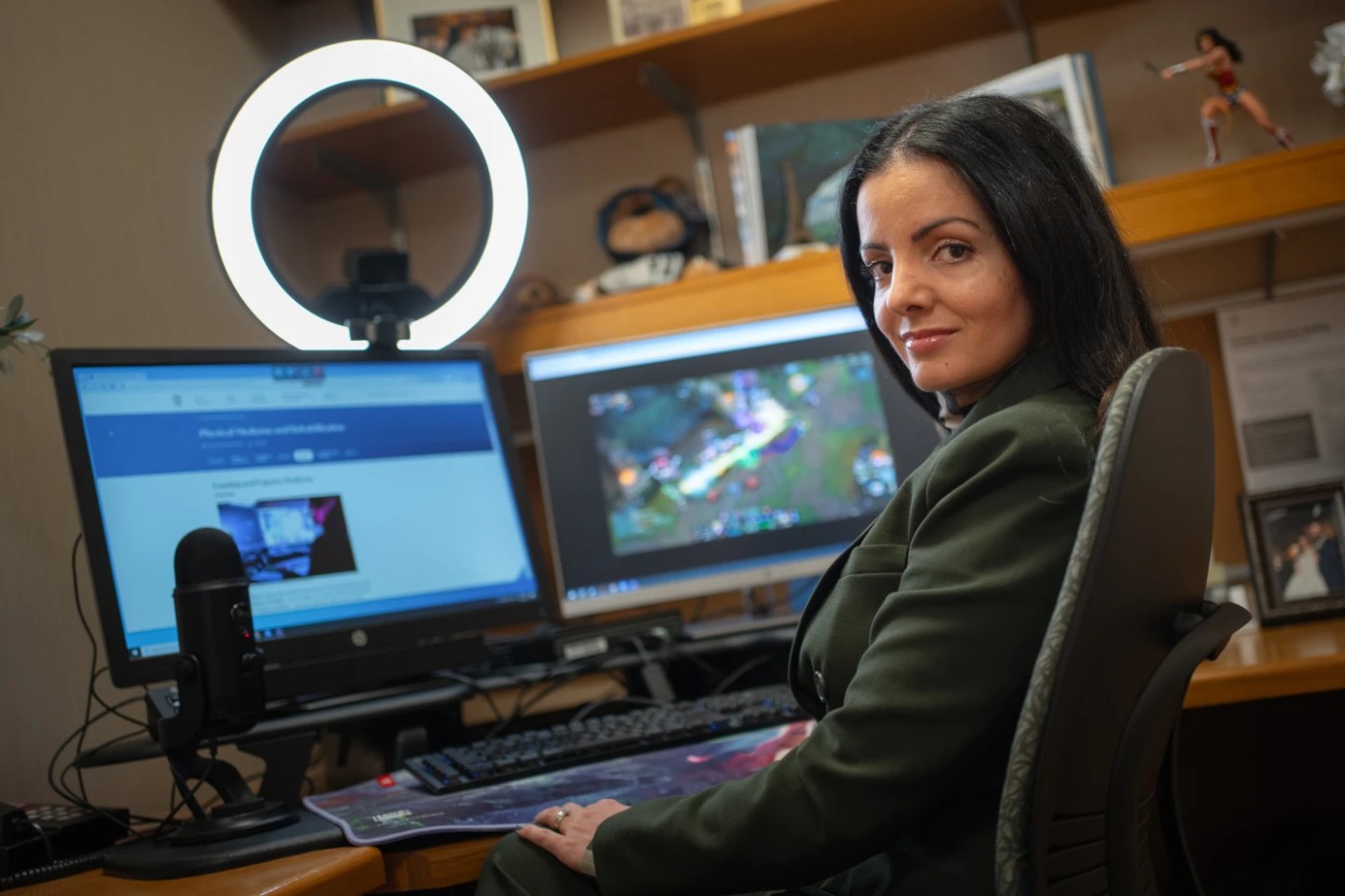
Mayo Clinic team cares for a booming population group: video game players
ROCHESTER — When athletes get injured, they often turn to sports medicine to get back in the game.
But with the growing popularity of competitive video gaming, or esports, there’s “an unmet health care need,” said Dr. Jane Konidis, a physiatrist and senior associate consultant in the Department of Physical Medicine and Rehabilitation at Mayo Clinic.
“Gaming and esports is a growing area that’s here to stay, especially with the pandemic,” Konidis said. “Research shows us only about 2 to 3% of players will actually consult when they have an injury or illness, so we know they’re out there.”
Konidis is the director of Mayo Clinic’s Gaming and Esports Medicine, a specialty group formed in 2021 that focuses on issues that impact professional and hobbyist video gamers.
A common misconception, Konidis said, is that esports competitors don’t suffer injuries. Those injuries do look different, though — traditional athletes might be injured in an acute event, like breaking their arm in a fall. Konidis said esports injuries often stem from repetition and overuse.
“Some of these players can be doing over 500 actions a minute, which is huge — that’s clicks on a keyboard, clicks on a mouse,” Konidis said. “So you can imagine the tendons can get overloaded and have some wearing down.”
Common complaints, Konidis said, include eye fatigue and pain in the hands, wrists and back.
Konidis and her colleagues see patients from around the world in person and through virtual care visits.
“A specialist like myself will be initially involved, and often our physical and occupational therapists will also be involved,” Konidis said. “Other areas (patients) might need to consult with that we collaborate with closely are, for example, an orthopedic hand surgeon, a psychologist or if we need to dive into more detail in nutrition and lifestyle.”
The Gaming and Esports Medicine Clinic also addresses performance improvement, something Konidis defined as building healthy habits and preventing injuries.
“Small, consistent changes can really lead to big wins for a player’s health, and in game, as well,” she said. “Making sure you get some physical activity as well throughout this, good sleep and good basics.”
Outside of medicine, gaming is something Konidis is personally passionate about — as a self-described lifelong gamer, she said she enjoys action adventure and sports games.
“I play mostly on console right now just because it’s easier to pick up and then drop off when things get busy,” she said.
Related Articles
Reproductive policy fights renew the focus on IVF
Southern lawmakers rethink long-standing opposition to Medicaid expansion
Inside the plan to diagnose Alzheimer’s in people with no memory problems — and who stands to benefit
Largest COVID vaccine study yet finds links to health conditions
Warnings of the impact of fertility treatments in Alabama rush in after frozen embryo ruling


